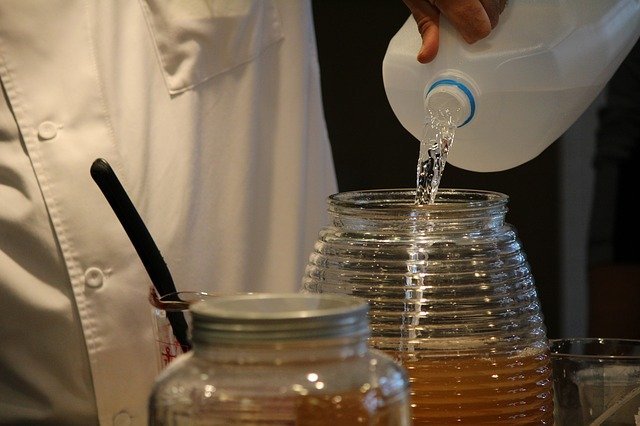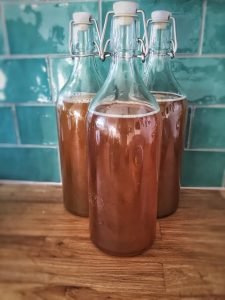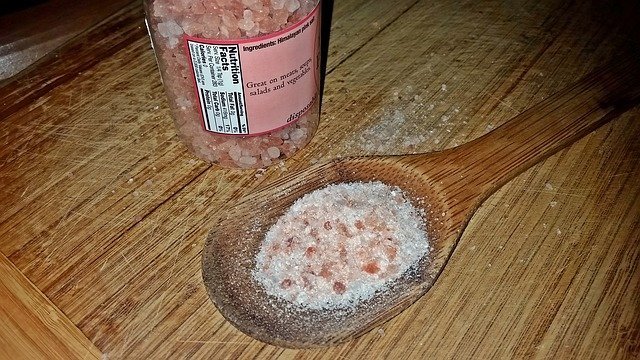Over 2,000 years ago the Chinese dubbed kombucha tea as the “Immortal Health Elixir” or the “Tea of Immortality” because of its many health benefits. The first mentioned use of the tea was during China’s Tsin Dynasty in 221 BC. The age-old fermented beverage is brimming with a variety of minerals, vitamins, enzymes, and antioxidants.
History of Kombucha
A Korean doctor used the beneficial tea to treat Japan’s Emperor Inyko in 415 AD. The physician’s name was ‘Kombu’ and the Japanese word for tea is ‘cha’. The two words were quickly combined and the name kombucha was created.
The tea’s popularity quickly spread to Russia where it was frequently called “Tea Kvass’ made from the “Japanese Mushroom”. Although the drink contained no mushrooms, many people felt that the fermenting cultures that were floated on top of the liquid during its creation resembled a large, whitish mushroom. From Russia, the drink’s reputation as curative drink reached Poland, Prussia, Germany, and Denmark where it was readily embraced as not only a tasty refreshment but also a medicinal ‘cure all’.
Modern Popularity of Kombucha
During World War I and II, the fermented beverage’s popularity waned. However, shortly after World War II, a German doctor started using Kombucha tea as a treatment for cancer patients, diabetes, metabolic disorders, and high blood pressure. His research spurred renewed interest in the bevy of possible health benefits that the tea provides. Nowadays, it has been widely commercialized and is available throughout the United States, Europe, Russia, and many other parts of the world.
In the United States, it has been widely embraced by the booming health and naturopathic industry. Virtually all health food stores sell a wide assortment of brands and varieties to fit every taste.
What is Kombucha Tea?
Kombucha tea is a fermented beverage that contains live cultures. It is created by using a symbiotic culture of bacteria and yeast (SCOBY) and mixing the substance into sweetened black or green tea. The cultures feed on the sugar and start to produce by-products such as glucuronic acid, acetic acid, gluconic acid, malic acid, lactic acid, usnic acid, amino acids, enzymes, and butyric acid. A variety of other vitamins, particularly B vitamins and vitamin C are also created. Within the mixture, healthy probiotics flourish and grow. The entire fermentation process typically takes seven to fourteen days.
During the fermentation process, the SCOBY will consume approximately 90 percent of the sugar within the tea. The SCOBY floats on top of the liquid during the fermentation process and has the appearance of a whitish, gooey pancake or mushroom which is why it is often referred to as the “Japanese Mushroom Tea”. After the fermentation process is complete, the SCOBY can be scooped away from the liquid and reused to make future batches of the tea.
Kombucha Tea With an Alcohol Twist
Although the fermentation process naturally creates alcohol as a by-product, the bacteria within the culture quickly change the alcohol into organic acids. When complete, the drink typically contains only 1 percent or less alcohol. Modern-day commercially available kombucha beverages usually contain less than 0.5 percent alcohol.
15 Health Benefits of Kombucha
The tangy concoction is more than a simple drink. It offers numerous health benefits, especially when consumed daily. The beverage appears to contain enormous antibiotic, antiviral, antimicrobial, and antifungal properties.
1..Probiotics
The healthy elixir drink is packed with active and thriving probiotics. Probiotics are beneficial for the digestive tract. When the drink is consumed, the abundant probiotic bacteria line the digestive tract where they help digestion, aid the immune system, and assist the body in absorbing valuable nutrients. Over time and with regular consumption, the probiotics readily colonize in the digestive tract and flourish. This is exceptionally beneficial for many individuals who suffer from irritable bowel syndrome (IBS) or Crohn’s disease.
2. Antioxidants
Antioxidants boost the body’s immune system and effectively protect the body from free radicals. Free radicals are believed to cause cancer, cardiovascular disease, and other cellular damage. The tea is filled with healthy antioxidants such as D-saccharic acid-1,4-lactone (or DSL for short) which is only found in fermented beverages.
3. Liver Support
Daily consumption is believed to cleanse the liver through a detoxification process. It is high in glucaric acid which aids the liver in its natural functions. It also helps the liver to filter out harmful toxins from the body.
4. Joint Health
Glucosamine, which has been shown to maintain and repair joints, abounds in the fermented beverage. The glucosamine raises the levels of hyaluronic acid in the body which lubricate the joints. Hyaluronic acid has been proven to alleviate joint pain, especially the discomfort caused from arthritis according to the Arthritis Foundation. Arthritis sufferers frequently suffer reduced joint inflammation pain when drinking kombucha.
5. Antibacterial
The antibacterial properties found in the tea actively kill harmful bacteria such as E. coli, Sh.sonnei, staph, two strains of salmonella, and Campylobacter jejun, according to the Oncology Institute of Vojvodina and the Department of Applied Microbiology and Gene Technology, TNO Nutrition and Food Research Institute. The colonization of the probiotic bacteria within the digestive tract also appear to increase the body’s resistance to harmful bacteria which might inadvertently be ingested.
6. Heart Disease
Green tea has been shown to reduce LDL and HDL cholesterol levels when consumed on a daily basis. When combined with the SCOBY cultures to create the popular fermented drink the beverage’s ability to lower cholesterol is even more pronounced according to a study done by Animal Ecophysiology Laboratory, Department of Life Sciences, Sciences Faculty of Sfax, University of Sfax of Tunisia
7. Type 2 Diabetes
Regular consumption of the fermented drink has been shown to slow the digestion of carbs in the digestive tract. The inability of the digestive tract to convert the carbs to sugar helped lower the blood sugar levels. When combined with green tea, the blood sugar levels were even more reduced. In fact, studies have found that green tea drinkers are 13 percent less likely to develop type 2 diabetes than non-tea drinkers, according to the George Institute for International Health, The University of Sydney, Australia.
8. Cancer Prevention
Since the early days, physicians have believed that kombucha may prevent cancer by stopping or preventing cell mutations in the body. Tea naturally contains polyphenols, which have been shown to prevent cancer by blocking gene mutations and effectively killing cancer cells. When mixed with the SCOBY, the benefits become even more pronounced according to a report published by Science Direct.
9. Lung Benefits
Researchers have been studying the possible benefits of inhaling the fermented drink instead of drinking it. Scientists at the Tropical Crops Genetic Resources Institute, Chinese Academy of Tropical Agricultural Sciences in Hainan, China found that inhaling the active drink appeared to help individuals who were suffering from silicosis, a lung disease caused by inadvertently inhaling silica particles. The concoction appears to help clear the lungs of the silica dust. However, it is not advised that anyone should inhale the liquid without first consulting with their physician,
10. Abundant Nutrients
Just one glass of the tea-like beverages contains seven grams of carbohydrates. There is also 20 percent of the daily value of B-vitamins. An eight-ounce glass offers Bacillus coagulans GBI-30 6086 which is one billion organisms plus another one billion S. Boulardii. There is also approximately 10 mg glucuronic acid, 25 mg lactic acid, and 30 mg acetic acid.
11. Mental Benefits
The abundant B vitamins, especially B12, help promote a mental well-being. A leaky gut has also been shown to cause depression in some individuals and the active cultures aid in the body’s digestion which helps heal a leaky gut and reduce the likelihood of depression.
12. Increased Energy
The enzymes and acids all work together to increase your energy levels.
13. Pancreatic Function
Regular consumption has been shown to improve pancreatic function.
14. Prevents High Blood Pressure
The detoxifying and alkalizing effects appear to prevent or reduce high blood pressure when regularly consumed. It also works by adding good bacteria to the gut which helps decrease insulin resistance. Insulin resistance has a very direct effect on blood pressure so by decreasing it, the blood pressure is also naturally lowered.
15. Improves Skin Health
Studies were done by the Department of Medical Pharmacology, Internal Medical Sciences Division, Faculty of Medicine, Giresun University, of Giresun, Turkey that has shown that regular consumption decreases cellular death and damage. This improves skin health and may combat certain skin disorders. Skin can more readily repair the damage.
Kombucha is a Nutrient Powerhouse
Kombucha contains a bevy of nutrients such as various key minerals. It is brimming with B vitamins such as vitamins B1 (thiamine), B2 (riboflavin), B3 (niacin), B6, B9 (folic acid), and B12. Vitamin C is also a key player in the effervescent beverage. It also contains high levels of gluconic acid, oxalic acid, acetic acid, glucuronic acid, usnic acid, fructose, lactic acid, and numerous beneficial live enzymes.
Nutrition Facts
One eight-ounce serving size contains:
- 25 percent folic acid
- 20 percent B2, B6, and B1
- 20 percent B3 and B12
- Bacillus coagulans GB1-30 6086: 1 Billion Organisms
- Boulardii: 1 Billion Organisms
- EGCG 100mg
- Glucuronic Acid 10 mg
- L+Lactic Acid 25mg
- Acetic Acid 30 mg
- Calories: 30
- Calories from Fat: 0
- Total Carbs 7g which is 2 percent
- Protein 0g
What Does Kombucha Taste Like?
Many people adore the frizzy sweet/sour refreshing drink but for others, it is an acquired taste. Most commercially available beverages contain flavors such as fruity, floral, spicy, or herbaceous to render it more palatable. Many people compare the flavor to that of sparkling apple cider. Interestingly, even though it is a tea-concoction, it does not taste very much like tea.
Risks and Side Effects of Kombucha
Any food or beverage has certain risks or side effects.
Here are a few considerations:
- Pregnant and nursing mothers should always consult with their physician prior to consuming the tea-like fermented drink.
- Many people report feeling bloated. This feeling is from the probiotic and may occur from the change in the digestive tract’s bacterial colonies. Anyone suffering from a digestive disorder should always consult with their physician prior to consuming any probiotic rich food or beverage.
- When made incorrectly, the SCOBY drink may contain harmful bacteria.
- The acids within the drink may be harmful to dental health if consumed regularly. It can break down tooth enamel.
- Lactic acidosis may develop in certain individuals.
- Contains small amounts of caffeine.
- Contains small amounts of sugar.
- Contains reduced levels of alcohol.
How to Make the ‘Immortal Health Elixir’ Kombucha
Making the kombucha at home is relatively easy. SCOBY is generally sold in powdered form. You will have to mix it to activate the cultures. Follow the directions on the SCOBY label to activate it prior to use.
Step One: Brew a gallon jug of hot black, green, or white tea in a glass jar. Use eight tea bags or 2 tablespoons of tea to achieve the most desirable tea strength.
Step Two: Add one cup of sugar to the hot tea. Mix the sugar and tea together.
Step Three: Cool the tea
Step Four: Add two cups of white distilled vinegar to the tea.
Step Five: Add active SCOBY. Follow the directions on the SCOBY label to determine how much to use. Spoon the SCOBY carefully on top of the tea so it is floating on the tea’s surface.
Step Six: Place a paper towel over the top of the glass jar and secure with a rubber band.
Step Seven: Set the glass jar somewhere safe and let ferment at room temperature for 7 to 30 days. The longer the SCOBY is allowed to ferment in the tea, the less sweet it will be because the SCOBY consumes all of the sugar. It is suggested that you taste test the fermented drink every few days to determine the flavor that best fits your own palate.
Step Eight: Pour the SCOBY from the top of the beverage. Save the SCOBY to make future batches. The beverage is now ready to consume.
Additional flavorings can be added to make the drink more palatable. Try a bit of pumpkin spice, a dash of honey, pinch of citrus, or a few sprinkles of cinnamon to zest up the tea.
The health benefits of consuming kombucha tea are virtually undeniable. Many people indulge in the fizzy drink daily and others only on occasion. The revitalizing beverage is versatile and can be tailored to fit anyone’s taste.
Sources:
http://www.seedsofhealth.co.uk/fermenting/kombucha.shtml
http://www.foodrenegade.com/kombucha-health-benefits/
https://joybileefarm.com/manage-blood-pressure-naturally/
https://draxe.com/7-reasons-drink-kombucha-everyday/
http://www.thekitchn.com/what-to-expect-the-first-time-you-drink-kombucha-maker-tour-part-two-218422
http://americannutritionassociation.org/newsletter/kombucha-tea
http://www.webmd.com/diet/the-truth-about-kombucha
https://www.organicfacts.net/health-benefits/beverage/health-benefits-of-kombucha.html
https://www.culturesforhealth.com/learn/kombucha/how-to-make-kombucha/
https://www.healthline.com/nutrition/8-benefits-of-kombucha-tea#section5







